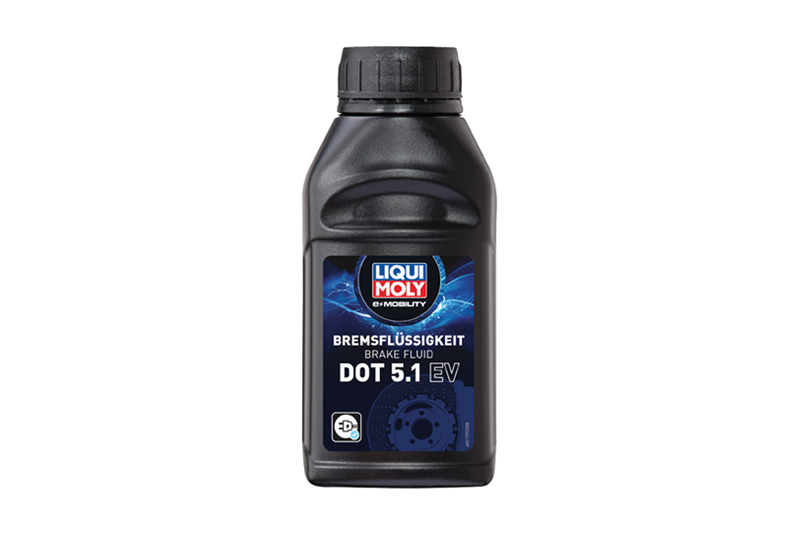
Brake Fluid DOT 5.1 EV has been launched – and there are several reasons for this innovation.
Vehicles with a conventional combustion engine have a brake system – electric and hybrid cars too. Usually, all of them require the brake fluid to be changed every two years: “But that’s about it for the similarities, because the requirement profile of EVs is sometimes completely different,” according to David Kaiser, who heads the research and development department at LIQUI MOLY.
That’s why the specialist for vehicle chemicals has developed Brake Fluid DOT 5.1 EV.
There are a number of reasons why brake systems are more demanding for vehicles that are partly or purely electrically powered: “One is corrosion protection,” said David. “Because the electric motor also acts as a brake and uses it to generate energy for the battery, the mechanical brake system is used less frequently. This leads to spot corrosion (special additives counteract this effect).
“However, this does not mean that a brake system in an EV only does a little work. These vehicles are generally heavier than vehicles that are powered by an internal combustion engine and rapidly reach high speeds from which they also have to be braked abruptly in the event of danger. As a result, the brakes quickly become very hot. Brake fluids, such as our new DOT 5.1 EV, have to be effective even when the brake system is hot and, therefore, require a high dry and high wet boiling point.”
Property number three is the lowest possible electrical conductivity. This plays a role if an electrical system is installed near the brake system and is not sufficiently shielded. As with the wireless, inductive charging of an electric toothbrush or mobile phone, electrical voltages can then be induced in the brake system, which can decompose the brake fluid or promote corrosion.
The fourth property of interest is viscosity – David continued: “As with motor oil, the flow behaviour is decisive for the performance of the fluid. The lower the viscosity, the faster the engine is fully oiled. A low-viscosity brake fluid transmits the braking pulses in the system more quickly, the electronic driver assistance systems, such as ABS or ESC function better and respond even more sensitively.”








